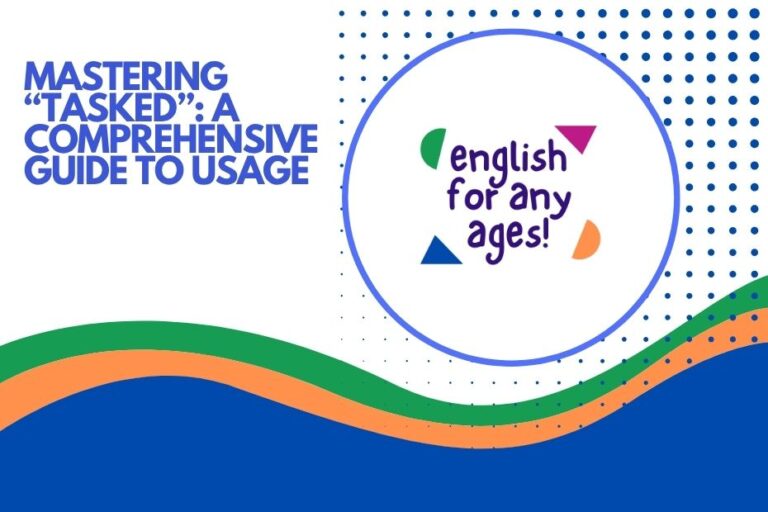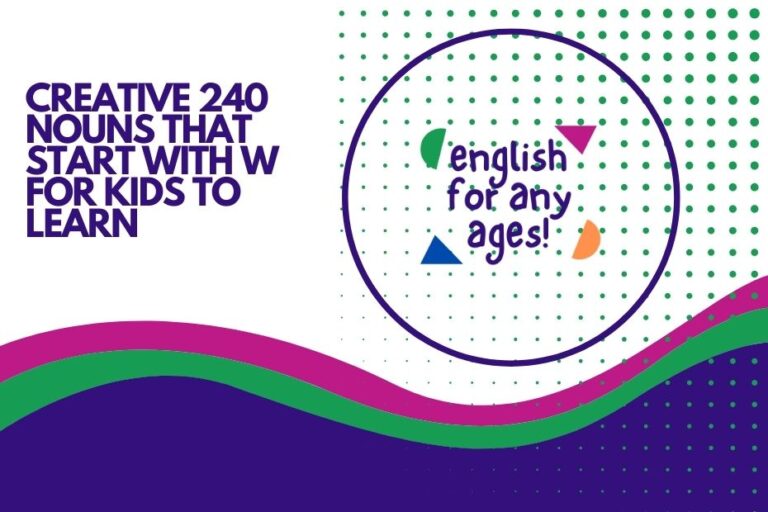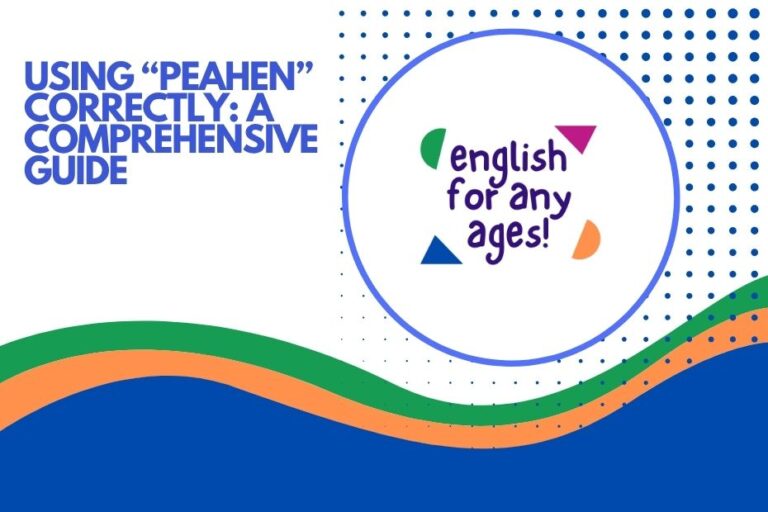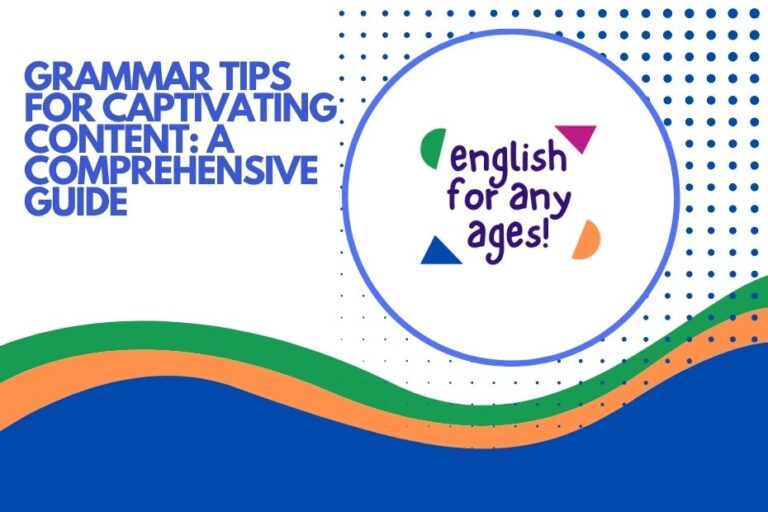Nouns That Start With B: A Fun and Easy Guide for Kids
Nouns are an important part of our language. They help us name people, places, things, and even ideas!
Today, we’ll dive into the many types of nouns that start with B. Let’s explore them one by one with examples for practice noun at home.
Nouns Beginning With B – Explore Examples With All Types
Lets get a huge list of nouns that begin with b. We give examples for every types of nouns here.
1. Proper Nouns
Proper nouns name specific people, places, or things and always start with a capital letter. Examples:
1. Barcelona
Barcelona is a proper noun because it is the name of a specific city in Spain, which is a unique place.
2. Beethoven
Beethoven is a proper noun because it refers to a specific person, the famous German composer.
3. Brooklyn
Brooklyn is a proper noun because it denotes a specific borough in New York City.
4. Boeing
Boeing is a proper noun because it is the name of a specific company.
5. Botswana
Botswana is a proper noun because it is the name of a specific country in Southern Africa.
6. Boston
Boston is a proper noun because it is the name of a specific city in the United States.
7. Big Ben
Big Ben is a proper noun because it refers to a specific clock tower in London.
8. Bill Gates
Bill Gates is a proper noun because it refers to a specific individual, the founder of Microsoft.
9. Buckingham Palace
Buckingham Palace is a proper noun because it is the name of a specific royal residence in London.
10. Bali
Bali is a proper noun because it is the name of a specific island in Indonesia.
11. Bollywood
Bollywood is a proper noun because it refers to the specific Indian film industry based in Mumbai.
12. Burger King
Burger King is a proper noun because it is the name of a global fast-food restaurant chain.
13. Buckinghamshire
Buckinghamshire is a proper noun because it is the name of a specific county in England.
14. Burj Khalifa
Burj Khalifa is a proper noun because it refers to a specific landmark in Dubai.
15. Blue Nile
Blue Nile is a proper noun because it refers to a specific river in Ethiopia.
2. Common Nouns
Common nouns refer to general people, places, or things. Examples:
1. Ball
“Ball” is a common noun because it represents a general object used in games and activities.
2. Book
“Book” is a common noun because it refers to any printed or written work used for reading.
3. Bag
“Bag” is a common noun because it denotes a general item used for carrying things.
4. Bird
“Bird” is a common noun because it refers to any member of the avian species.
5. Building
“Building” is a common noun because it represents a structure used for living or working.
6. Bench
“Bench” is a common noun because it denotes a type of seat used by multiple people.
7. Bottle
“Bottle” is a common noun because it refers to a container used for liquids.
8. Bridge
“Bridge” is a common noun because it represents a structure built to connect two points over a gap.
9. Box
“Box” is a common noun because it refers to a container used for storage or packaging.
10. Bus
“Bus” is a common noun because it represents a general vehicle used for public transportation.
11. Beach
“Beach” is a common noun because it denotes a general sandy area near a body of water.
12. Blanket
“Blanket” is a common noun because it refers to a general item used for warmth or covering.
13. Bell
“Bell” is a common noun because it represents an object used to make a ringing sound.
14. Bank
“Bank” is a common noun because it refers to a general institution for money transactions.
15. Basket
“Basket” is a common noun because it represents a container used to carry or hold items.
3. Abstract Nouns
Abstract nouns name ideas, feelings, or qualities that cannot be touched. Examples:
1. Beauty
“Beauty” refers to the quality that gives pleasure to the senses or the mind.
2. Bravery
“Bravery” is the quality of being courageous and facing fear or danger.
3. Belief
“Belief” is the acceptance that something exists or is true, especially without proof.
4. Boredom
“Boredom” is the state of being weary and restless because of lack of interest.
5. Brotherhood
“Brotherhood” refers to the bond between people who share common interests or experiences.
6. Bliss
“Bliss” is the state of complete happiness or joy.
7. Balance
“Balance” refers to a state of being in equilibrium, where forces or elements are evenly distributed.
8. Bounty
“Bounty” refers to a generous gift or reward, often associated with abundance.
9. Burden
“Burden” is the weight or responsibility that someone carries, either physically or emotionally.
10. Belonging
“Belonging” is the feeling of being accepted as part of a group or place.
11. Business
“Business” refers to an organization or activity that provides goods or services.
12. Brilliance
“Brilliance” refers to exceptional intellectual or creative ability.
13. Bargain
“Bargain” refers to an agreement or transaction that is advantageous to both parties.
14. Balance
“Balance” refers to a state of stability and harmony in various aspects of life.
15. Banter
“Banter” refers to playful and friendly exchange of remarks or jokes.
4. Concrete Nouns
Concrete nouns name things you can touch, see, smell, hear, or taste. Examples:
1. Ball
“Ball” is a concrete noun because it refers to a tangible object used in various games.
2. Book
“Book” is a concrete noun because it refers to a physical object used for reading.
3. Bag
“Bag” is a concrete noun because it denotes a physical object used for carrying items.
4. Bird
“Bird” is a concrete noun because it refers to a living animal that can be physically observed.
5. Building
“Building” is a concrete noun because it refers to a physical structure used for various purposes.
6. Bench
“Bench” is a concrete noun because it refers to a physical piece of furniture used for sitting.
7. Bottle
“Bottle” is a concrete noun because it refers to a container, usually made of glass or plastic, for liquids.
8. Bridge
“Bridge” is a concrete noun because it refers to a tangible structure used to cross over obstacles like rivers.
9. Box
“Box” is a concrete noun because it refers to a physical container used for storage or packaging.
10. Bus
“Bus” is a concrete noun because it refers to a physical vehicle used for public transportation.
11. Beach
“Beach” is a concrete noun because it refers to a physical place near a body of water.
12. Blanket
“Blanket” is a concrete noun because it refers to a tangible object used for warmth or covering.
13. Bell
“Bell” is a concrete noun because it refers to a physical object that produces sound when struck.
14. Bank
“Bank” is a concrete noun because it refers to a physical financial institution for storing money.
15. Basket
“Basket” is a concrete noun because it refers to a physical container used to hold or carry items.
5. Collective Nouns
Collective nouns describe a group of people, animals, or things. Examples:
1. Band
“Band” refers to a group of musicians or performers.
2. Battery
“Battery” refers to a collection of cells used to store energy.
3. Brood
“Brood” refers to a group of young animals born at one time to the same mother.
4. Block
“Block” refers to a group of things that are stacked or placed together.
5. Bevy
“Bevy” refers to a group of birds, especially waterfowl.
6. Bunch
“Bunch” refers to a group of things held together, often used for fruits or flowers.
7. Bloat
“Bloat” refers to a large group of animals, especially fish or hippos, gathered in one area.
8. Brigade
“Brigade” refers to a group of people organized for a particular purpose, such as a fire brigade.
9. Batch
“Batch” refers to a quantity of things produced together or at the same time.
10. Board
“Board” refers to a group of people who oversee or manage an organization.
11. Box
“Box” refers to a group of items that are stored in a container.
12. Brigade
“Brigade” refers to a group of people organized for a specific task, such as a rescue brigade.
13. Bundle
“Bundle” refers to a collection of things tied or wrapped together.
14. Bunch
“Bunch” refers to a group of things or people held together in one mass.
15. Bank
“Bank” refers to a collection of objects or things, like a bank of tools or knowledge.
6. Countable Nouns
Countable nouns are things you can count. Examples:
1. Ball
“Ball” is countable because it refers to an object used in games, and you can have more than one ball.
2. Book
“Book” is countable because you can count individual books.
3. Bag
“Bag” is countable because you can have more than one bag.
4. Bird
“Bird” is countable because you can count individual birds.
5. Building
“Building” is countable because you can count the number of buildings.
6. Bench
“Bench” is countable because you can count the number of benches in a park or area.
7. Bottle
“Bottle” is countable because bottles can be individually counted.
8. Bridge
“Bridge” is countable because you can count the number of bridges in a city.
9. Box
“Box” is countable because you can have more than one box.
10. Bus
“Bus” is countable because you can count the number of buses on a route.
11. Beach
“Beach” is countable because you can count different beaches.
12. Blanket
“Blanket” is countable because you can have multiple blankets.
13. Bell
“Bell” is countable because you can count bells.
14. Bank
“Bank” is countable because you can have more than one bank in a city or country.
15. Basket
“Basket” is countable because you can count the number of baskets used for carrying items.
7. Uncountable Nouns
Uncountable nouns cannot be counted. Examples:
1. Butter
“Butter” is an uncountable noun because it refers to a substance made from cream, used in cooking and as a spread.
2. Bread
“Bread” is uncountable because it refers to the general food made from flour, water, and yeast, which cannot be counted individually.
3. Blood
“Blood” is uncountable because it refers to the red liquid in the body that circulates through the veins and arteries.
4. Beauty
“Beauty” is uncountable as it refers to the quality of being attractive or pleasant, a general concept that cannot be counted.
5. Baggage
“Baggage” refers to the suitcases and personal items one carries while traveling, which are considered as a whole, not individually countable.
6. Business
“Business” is uncountable as it refers to the overall activity or industry involved in trade, work, or commercial activity.
7. Bravery
“Bravery” is uncountable because it refers to the quality of being brave or courageous, a concept that is not divided into separate units.
8. Bargaining
“Bargaining” refers to the act of negotiating a price, and is uncountable because it refers to the process as a whole.
9. Bacteria
“Bacteria” refers to microorganisms, which are considered as a mass or group, and thus uncountable.
10. Beauty
“Beauty” refers to the quality of being attractive, and it cannot be counted as individual items.
11. Blood
“Blood” is uncountable because it is a substance that flows through veins, making it a singular mass concept.
12. Brickdust
“Brickdust” refers to the small particles or residue of bricks, an uncountable noun because it is treated as a single substance.
13. Barley
“Barley” refers to a type of grain, which is uncountable because it represents a substance or material, not individual items.
14. Buttercream
“Buttercream” refers to a smooth, creamy frosting made from butter and sugar, considered uncountable as a substance.
15. Bronze
“Bronze” refers to a type of metal, which is uncountable as it refers to a mass of material.
8. Compound Nouns
Compound nouns are formed by joining two or more words. Examples:
1. Backboard
“Backboard” refers to a board used in sports like basketball, attached behind the hoop.
2. Baseball
“Baseball” is a sport consisting of hitting and running to bases, and also the ball used in the game.
3. Bedtime
“Bedtime” refers to the time at night when someone goes to bed.
4. Backyard
“Backyard” is the area behind a house, often used for recreation or gardening.
5. Banknote
“Banknote” refers to paper money issued by a bank.
6. Bookstore
“Bookstore” is a shop where books are sold.
7. Bullfrog
“Bullfrog” is a type of frog, often large and characterized by its loud croak.
8. Bus stop
“Bus stop” refers to a designated location where buses pick up or drop off passengers.
9. Birthplace
“Birthplace” is the location where someone was born.
10. Bushel
“Bushel” is a unit of volume used for measuring agricultural products like fruits and vegetables.
11. Backbone
“Backbone” refers to the series of bones that form the vertebral column in the human body.
12. Briefcase
“Briefcase” is a flat, portable case used for carrying documents and personal items.
13. Bloodstream
“Bloodstream” refers to the system of blood circulating through the body.
14. Borderline
“Borderline” refers to the boundary or limit that separates one thing from another.
15. Breadbasket
“Breadbasket” refers to a region or area known for producing large quantities of food, especially grain.
9. Singular and Plural Nouns
- Singular Noun: Refers to one thing. Example: Book.
- Plural Noun: Refers to more than one thing. Example: Books.
More examples are here:
1. Ball / Balls
“Ball” is a common noun used in games, and “Balls” is its plural form.
2. Book / Books
“Book” refers to a printed or written work, and “Books” is its plural form.
3. Bag / Bags
“Bag” denotes a container for carrying things, and “Bags” is the plural.
4. Bird / Birds
“Bird” refers to a species of animal, and “Birds” is its plural form.
5. Building / Buildings
“Building” is a structure for living or working, and “Buildings” is the plural.
6. Bench / Benches
“Bench” is a seat for multiple people, and “Benches” is its plural.
7. Bottle / Bottles
“Bottle” is a container for liquids, and “Bottles” is its plural form.
8. Bridge / Bridges
“Bridge” is a structure over a gap, and “Bridges” is its plural form.
9. Box / Boxes
“Box” is a container, and “Boxes” is its plural form.
10. Bus / Buses
“Bus” refers to a vehicle for transportation, and “Buses” is the plural form.
11. Beach / Beaches
“Beach” is a sandy area near water, and “Beaches” is its plural form.
12. Blanket / Blankets
“Blanket” is used for warmth, and “Blankets” is the plural form.
13. Bell / Bells
“Bell” is an object that rings, and “Bells” is its plural form.
14. Bank / Banks
“Bank” refers to a financial institution, and “Banks” is the plural form.
15. Basket / Baskets
“Basket” is a container for carrying items, and “Baskets” is its plural form.
10. Possessive Nouns
Possessive nouns show ownership. Examples:
1. Bill’s Bike
“Bill’s” is a possessive noun because it shows ownership of the bike.
2. Brian’s Book
“Brian’s” is a possessive noun because it shows possession of the book.
3. Ben’s Bag
“Ben’s” is a possessive noun because it indicates that the bag belongs to Ben.
4. Barbara’s Basket
“Barbara’s” is a possessive noun showing that the basket belongs to Barbara.
5. The Bird’s Nest
“Bird’s” is a possessive noun because it shows ownership of the nest by the bird.
6. The Boss’s Office
“Boss’s” is a possessive noun because it shows that the office belongs to the boss.
7. The Builder’s Tools
“Builder’s” is a possessive noun indicating that the tools belong to the builder.
8. Betty’s Ball
“Betty’s” is a possessive noun because it indicates that the ball belongs to Betty.
11. Appositive Nouns
An appositive noun explains or renames another noun. Examples:
1. Ben, the artist
“Ben, the artist,” is an appositive noun phrase providing more information about “Ben.”
2. Bill, my best friend
“Bill, my best friend,” is an appositive noun phrase identifying who Bill is.
3. Boston, the city of freedom
“Boston, the city of freedom,” provides additional information about Boston.
4. Betty, the baker
“Betty, the baker,” is an appositive noun identifying Betty’s profession.
5. The boy, a champion athlete
“The boy, a champion athlete,” is an appositive noun that gives more information about the boy.
6. Brian, a talented musician
“Brian, a talented musician,” is an appositive noun identifying Brian’s talent.
7. The book, a mystery novel
“The book, a mystery novel,” adds more information to clarify the type of book.
8. The baby, a gift from heaven
“The baby, a gift from heaven,” describes the baby with an appositive noun phrase.
12. Attributive Nouns
Attributive nouns act as adjectives to describe another noun. Examples:
1. Bicycle wheel
“Bicycle wheel” is an attributive noun, where “bicycle” modifies “wheel.”
2. Baseball bat
“Baseball bat” is an attributive noun, where “baseball” modifies “bat.”
3. Bank account
“Bank account” is an attributive noun, where “bank” modifies “account.”
4. Book cover
“Book cover” is an attributive noun, where “book” modifies “cover.”
5. Bed frame
“Bed frame” is an attributive noun, where “bed” modifies “frame.”
6. Bridge construction
“Bridge construction” is an attributive noun, where “bridge” modifies “construction.”
7. Butter knife
“Butter knife” is an attributive noun, where “butter” modifies “knife.”
8. Bicycle helmet
“Bicycle helmet” is an attributive noun, where “bicycle” modifies “helmet.”
13. Generic Nouns
Generic nouns are broad and refer to a general group or type. Examples:
1. Box
“Box” is a generic noun representing a container or a storage item.
2. Book
“Book” is a generic noun referring to a collection of written or printed pages.
3. Bag
“Bag” is a generic noun for a container typically used to carry items.
4. Ball
“Ball” is a generic noun used for a spherical object typically used in sports.
5. Branch
“Branch” is a generic noun for a part of a tree or plant that grows out from the main stem.
6. Bridge
“Bridge” is a generic noun used to describe a structure built to span a physical obstacle like a river.
7. Bird
“Bird” is a generic noun referring to any species of bird.
8. Brother
“Brother” is a generic noun for a male sibling.
14. Gerunds
Gerunds are nouns made from verbs by adding -ing. Examples:
1. Baking
“Baking” is a gerund noun that refers to the process of cooking food using dry heat, usually in an oven.
2. Biking
“Biking” is a gerund noun for the activity of riding a bicycle.
3. Boating
“Boating” is a gerund noun for the activity of traveling or racing in a boat on water.
4. Browsing
“Browsing” is a gerund noun for the act of looking through or searching casually, especially on the internet.
5. Bargaining
“Bargaining” is a gerund noun referring to negotiating the terms of a deal, usually to reach a more favorable price.
6. Building
“Building” is a gerund noun referring to the act of constructing something, such as a house or a structure.
7. Blending
“Blending” is a gerund noun referring to the process of mixing different ingredients or substances together.
8. Bouncing
“Bouncing” is a gerund noun referring to the action of a ball or object springing off a surface.
9. Brushing
“Brushing” is a gerund noun referring to the act of cleaning or grooming using a brush.
10. Begging
“Begging” is a gerund noun referring to the act of asking someone for money or help.
11. Burning
“Burning” is a gerund noun referring to the process of setting something on fire or the act of causing flames.
12. Believing
“Believing” is a gerund noun referring to the act of having faith or confidence in something.
13. Bothering
“Bothering” is a gerund noun for the act of annoying or disturbing someone.
14. Basking
“Basking” is a gerund noun referring to the act of lying in and enjoying warmth, usually from the sun.
15. Bathing
“Bathing” is a gerund noun for the act of washing or cleaning oneself in water.
15. Verbal Nouns
Verbal nouns are formed from verbs but do not act like verbs. They may end differently from gerunds. Examples:
1. Cooking
“Cooking” is a verbal noun because it is derived from the verb “cook” and represents the activity or process of preparing food.
2. Running
“Running” is a verbal noun because it refers to the act or process of running, stemming from the verb “run.”
3. Writing
“Writing” is a verbal noun as it represents the process or activity of composing words, derived from the verb “write.”
4. Reading
“Reading” is a verbal noun because it denotes the activity or process of looking at and understanding written text, derived from the verb “read.”
5. Singing
“Singing” is a verbal noun because it refers to the act or process of producing musical sounds with the voice, from the verb “sing.”
6. Painting
“Painting” is a verbal noun because it represents the activity or process of applying color to a surface, derived from the verb “paint.”
7. Swimming
“Swimming” is a verbal noun because it refers to the act or process of moving through water, derived from the verb “swim.”
8. Teaching
“Teaching” is a verbal noun because it signifies the process of imparting knowledge or skills, derived from the verb “teach.”
9. Jogging
“Jogging” is a verbal noun as it represents the activity or process of running at a slow pace, derived from the verb “jog.”
10. Driving
“Driving” is a verbal noun because it refers to the activity or process of controlling a vehicle, derived from the verb “drive.”
11. Traveling
“Traveling” is a verbal noun because it denotes the process or activity of going from one place to another, derived from the verb “travel.”
12. Shopping
“Shopping” is a verbal noun because it represents the activity of purchasing goods, derived from the verb “shop.”
13. Dancing
“Dancing” is a verbal noun because it refers to the activity or art of moving rhythmically to music, derived from the verb “dance.”
14. Cleaning
“Cleaning” is a verbal noun because it signifies the activity of making something clean, derived from the verb “clean.”
15. Cooking
“Cooking” is a verbal noun because it refers to the act or process of preparing food, derived from the verb “cook.”
Fun Activity!
Can you think of other nouns that start with B? Look around your home or classroom, and write them down. Whether it’s a book, a ball, or even bravery, nouns make our sentences more colorful and meaningful!
Start noticing the nouns in your everyday life, and don’t forget to look for all types of nouns that begin with B.
Write any words you can form with nouns that start with the letter B in the comment section.
Happy learning!






